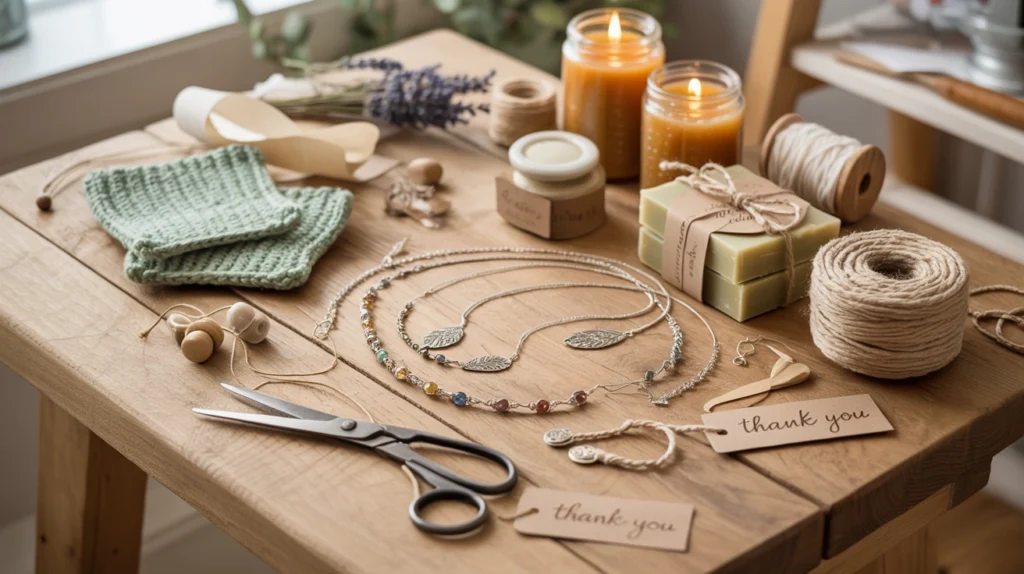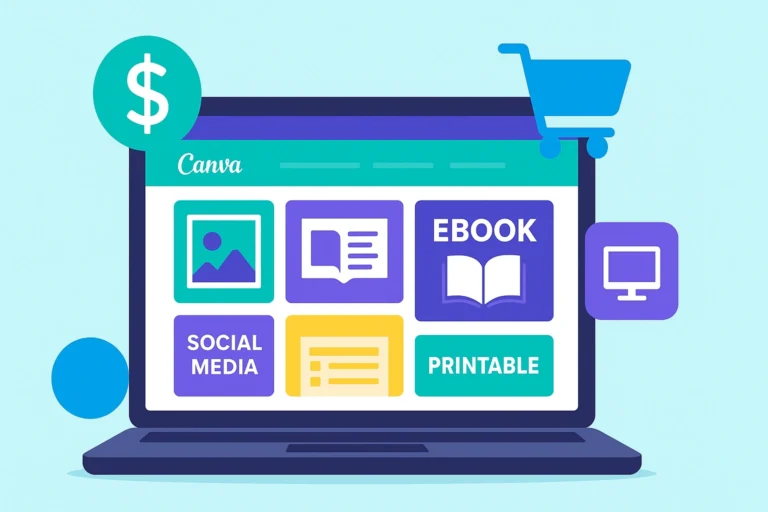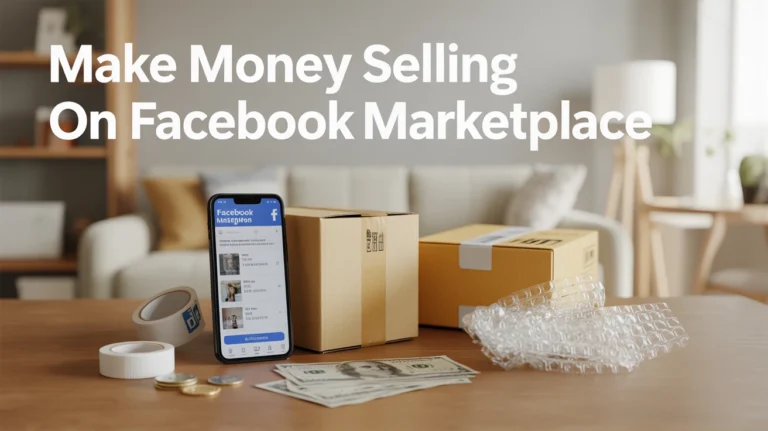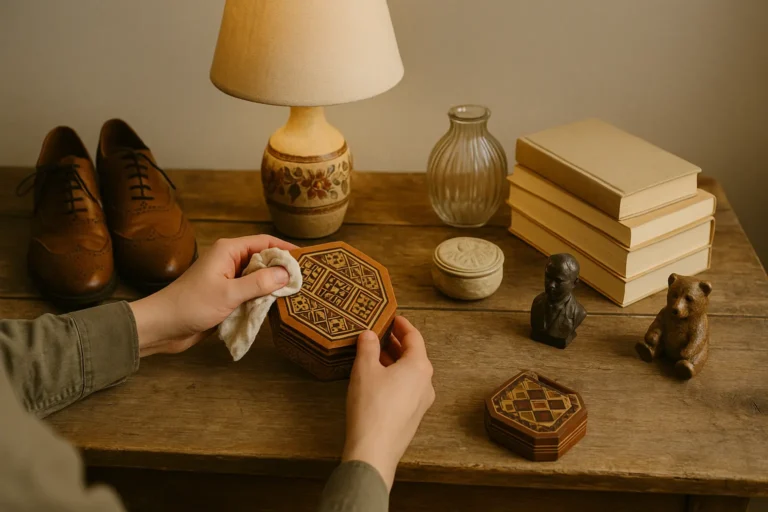Hobbies That Make Money: Fun, Profitable & Easy to Start From Home

Ever thought that the hobby you love could actually pay your bills? Whether it’s crafting, writing, baking, or designing, many people are turning their free-time passions into profitable ventures. In fact, some of the most successful side hustles today started as simple hobbies that make money — done from home, during weekends, or after work.
If you’ve ever caught yourself thinking, “I wish I could make money doing what I enjoy,” this guide is for you. We’re diving deep into the best hobbies that make money, how to choose one that fits your lifestyle, and exactly how to monetize it — even if you’re just starting out. From creative hobbies like handmade crafts and photography to digital ideas like blogging or selling printables online, there’s something here for every personality and schedule.
The best part? You don’t need a big investment or fancy setup. Many profitable hobbies can start with just a laptop, your existing skills, and a bit of consistency. By the end of this post, you’ll have a list of realistic, beginner-friendly hobbies that can make money from home — plus actionable tips to start earning right away.
How to Choose a Hobby to Monetize

Turning your passion into profit sounds exciting — but before jumping in, it’s important to pick the right hobby to make money from. Not every interest has the same income potential, so choosing wisely can save you time and effort down the road. Here’s how to figure out which of your hobbies can truly become a profitable side hustle.
1. Match Your Skills, Time, and Goals
Start by listing what you enjoy doing most — baking, painting, writing, organizing, or anything else you love. Then, be honest about how much time and energy you can give. Some hobbies that make money from home (like blogging or selling crafts) need consistent effort, while others (like stock photography or printables) can earn passively once set up.
Ask yourself:
- Do I enjoy doing this even without getting paid (yet)?
- Can I commit a few hours weekly to grow it?
- Does it align with my lifestyle and goals?
When your hobby matches your schedule and strengths, it becomes much easier to stay consistent — and consistency is what turns a fun hobby into a reliable income stream.
2. Check Market Demand and Profit Potential
The next step is understanding if people are actually willing to pay for what you create. A quick Google or Pinterest search can tell you what’s trending. Platforms like Etsy, Fiverr, and YouTube are also great for spotting hobbies that make money fast — simply look at what’s selling well or what content gets the most views.
If your hobby solves a problem or brings joy to others, it’s already monetizable. For example, organizing tips, digital planners, handmade candles, or personalized art often have consistent buyers. A little market research ensures your passion aligns with demand, making it easier to earn from it.
3. Estimate Costs and Time to Profit
Before investing in tools or materials, outline the basic costs. Some hobbies, like crafting or baking, might need upfront supplies, while others like writing or tutoring mainly need your skills and a stable internet connection.
Pick something low-risk to start. You can always upgrade later when profits start rolling in. Knowing your time-to-profit window (how long before you make your first sale) keeps expectations realistic and motivation high.
Pro Tip: Choose one hobby, start small, and test. You’ll learn what works faster than if you try five ideas at once
Creative Hobbies That Make Money
If you’re a creative person who loves crafting, painting, or designing — you’re already halfway to earning extra income. Creative skills are among the most profitable hobbies that make money from home, because people will always pay for unique, handmade, or personalized items. Let’s explore a few creative hobbies that can easily turn into real side incomes (and even full-time businesses).
Handmade Crafts

Making handmade products like jewelry, candles, soap, or crochet items is one of the oldest and most reliable hobbies that make money. People love the personal touch of handmade goods — something you just can’t get from mass-produced products.
You can sell your crafts on Etsy, Shopify, or Instagram, and even start small by taking local orders. Once you’ve built trust and consistent quality, your sales can grow fast.
💰 Estimated earnings: Beginners often make around $200–$800/month, while established Etsy sellers earn anywhere from $2,000 to $5,000+ per month, depending on demand and product type.
Woodworking & Furniture Upcycling
If you enjoy building or restoring furniture, this hobby can become both fun and profitable. Selling handmade shelves, tables, or custom decor online or locally can bring in serious income — especially when you focus on quality craftsmanship or sustainable materials.
You can start by sharing before-and-after photos on Facebook Marketplace or Instagram, then expand to a Shopify store once you have consistent buyers.
💰 Estimated earnings: Smaller projects can make around $300–$1,000/month, while professional-level creators who sell large furniture or custom builds earn anywhere from $2,000 to $7,000+ monthly.
Sewing, Tailoring & Custom Clothing

If you have sewing skills, you already own one of the most practical money-making hobbies for women. From altering clothes to creating embroidered outfits or handmade bags, there’s always a demand for skilled sewing work.
Start by offering local alteration services or personalized pieces, then promote your designs online once you’ve built a small customer base. Consistent quality and social media presence can help you grow fast.
💰 Estimated earnings: Beginners earn around $300–$800/month, while those running small home boutiques or Etsy shops often make $1,500–$4,000+ per month depending on order volume.
Each of these profitable hobbies can start small — from your living room, garage, or laptop — and grow into something sustainable. What matters most is consistency, good presentation, and treating your passion like a small business.
Digital & Content Hobbies That Pay
If you spend a lot of time online — creating, writing, or sharing — you already have what it takes to turn your screen time into income. The digital world has opened up endless hobbies that make money online, even for beginners with zero investment. Whether you’re creative, tech-savvy, or just consistent, there’s something here for everyone.
Let’s look at some of the best digital hobbies that can become steady income streams.
Blogging or Writing Online

If you enjoy writing, blogging is one of the best online hobbies that make money in the long term. You can write about anything you’re passionate about — travel, lifestyle, personal finance, or even productivity tips. Once your blog starts getting traffic, you can earn from ads, affiliate marketing, or sponsored content.
Starting a blog doesn’t require fancy tools — just consistent effort and valuable information for readers.
💰 Estimated earnings: New bloggers usually earn around $100–$500/month within the first 6 months. Established bloggers who focus on SEO and affiliate marketing can make $2,000–$10,000+ monthly, depending on traffic and niche.
YouTube or Video Creation
If you like sharing tutorials, reviews, or lifestyle tips, creating videos can become a powerful content hobby that pays. With YouTube or TikTok, you can build an audience and earn from ads, sponsorships, or brand deals.
You don’t need expensive gear to start — your phone and good lighting are enough. The key is consistency, authenticity, and valuable content that solves a problem or entertains viewers.
💰 Estimated earnings: Small creators with 10K–50K subscribers earn $500–$2,000/month, while established YouTubers with a loyal audience easily make $5,000–$20,000+ monthly through ads, sponsorships, and affiliate links.
Graphic Design & Digital Art

If you’re good with design tools like Canva, Photoshop, or Procreate, this can be one of the most profitable digital hobbies that make money. You can create social media templates, logos, business cards, or digital art prints — and sell them online as digital downloads.
Platforms like Etsy, Creative Market, and Fiverr are great starting points. You can even sell pre-made templates to creators and small businesses looking to save time.
💰 Estimated earnings: Freelance designers earn around $500–$2,500/month on average. Top digital artists selling templates or design packs can make $3,000–$8,000+ monthly, especially with passive sales.
Social Media Management
If you enjoy creating posts, writing captions, or planning content — social media management might be your perfect side hustle hobby. Many small business owners don’t have time to manage their pages, so they pay freelancers to handle everything from posting to engagement.
You can start by managing one or two accounts for friends or local shops, then expand through word-of-mouth or online platforms like Upwork or Fiverr.
💰 Estimated earnings: Beginners charge $200–$600 per client/month, while experienced managers with multiple clients earn $3,000–$7,000+ monthly.
Print-on-Demand & Merch Design
If you like designing t-shirts, mugs, or tote bags, print-on-demand lets you turn creativity into passive income. You create the designs once, and platforms like Redbubble, TeeSpring, or Printful handle printing and shipping for you.
You just earn a commission every time your design sells — meaning you make money even while you sleep.
💰 Estimated earnings: Beginners earn around $100–$500/month, while top creators with trending designs make $2,000–$6,000+ monthly without managing inventory.
Skill-Based Hobbies That Make Money
If you love learning new things or helping others do the same, skill-based hobbies are the perfect way to earn extra income while doing what you enjoy. These are hands-on, teachable skills that people will happily pay for, when everyone’s looking to save time or learn faster online. Whether you’re crafty, organized, or simply skilled at something practical, there’s always a market waiting for you.
Baking & Cake Decorating

If you love baking desserts or decorating cakes for family events, this hobby can easily turn into a profitable small business from home. With social media platforms like Instagram and Facebook, you can showcase your creations and attract local customers fast. Start small with birthday cakes or cupcakes, and expand into custom designs or online baking classes once you gain experience.
💰 Estimated earnings: Home bakers typically make $500–$3,000/month, while skilled decorators with consistent orders earn $5,000+ monthly, depending on their clientele and location
Photography
Photography is one of those hobbies that make money from home or outdoors — whichever you prefer. You can start by photographing products, events, or portraits, then sell your work as digital downloads or prints. Many photographers also make extra income by selling stock photos on sites like Shutterstock or Adobe Stock.
You don’t need the latest camera gear; even smartphone photography can pay off if your shots are creative and high-quality.
💰 Estimated earnings: Beginners earn around $300–$1,000/month, while professional or stock photographers can make $2,000–$6,000+ monthly, depending on sales and clients.
Tutoring or Online Coaching

If you’re great at explaining concepts — whether it’s school subjects, languages, or life skills like budgeting or organization — tutoring can be a rewarding hobby that makes money. You can offer one-on-one sessions through platforms like Zoom, Google Meet, or teaching websites like Preply and Skillshare.
Once you gain students, you can scale by launching your own course or YouTube channel.
💰 Estimated earnings: Private tutors earn about $20–$60/hour, while online course creators can earn $1,000–$10,000/month depending on course demand.
Fitness Coaching or Yoga
If you’re passionate about health and wellness, consider turning that into a part-time income stream. Fitness coaching, yoga, or even walking groups can become fulfilling side hustles that promote well-being while earning money. You can offer virtual classes via Zoom or create pre-recorded fitness videos for social media.
💰 Estimated earnings: Certified online trainers or yoga instructors make around $1,500–$6,000/month, depending on clients and hours worked.
Home Organization or Decluttering Services
If you’re naturally organized and love tidy spaces, this underrated skill-based hobby can become a real business. Many people are willing to pay for help organizing their homes, closets, or digital files. You can start locally and later expand online by sharing organizing tips, printable planners, or consulting sessions.
💰 Estimated earnings: Home organizers typically make $25–$80/hour, while professional organizers with consistent clients earn $2,000–$7,000/month.
Skill-based hobbies aren’t just side hustles — they’re gateways to long-term independence. You get to create something valuable, help people, and build a name for yourself in your local or online community. With dedication, any of these can evolve into a reliable source of income from home in 2025 and beyond.
Monetization Methods & Platforms
Now that you’ve found a few hobbies that make money, the next step is learning how to turn those hobbies into actual income. Whether you’re crafting handmade products, offering digital services, or teaching skills online, choosing the right monetization method can make all the difference.
Each platform and selling style has its strengths — some offer built-in audiences, while others give you more control over branding and profits. Let’s break down the most effective options and how they fit different business types.
Marketplace Selling
If your hobby involves creating physical or digital products — like jewellery, candles, printables, or planners — marketplaces such as Etsy and Amazon Handmade are ideal starting points. These platforms already have millions of buyers looking for unique, creative goods.
Pros:
- Easy to start — no website or tech setup required
- Access to huge, pre-existing audiences
- Built-in tools for shipping, payments, and marketing
Cons:
- High competition, especially in popular categories
- Marketplace fees can reduce profit margins (Etsy takes ~6.5%)
- Limited control over branding and customer relationships
💡 Best for: Beginners who want to test demand before launching their own store.
💰 Estimated income: Sellers typically earn $300–$3,000/month, while established shops can hit $10,000+ with consistent marketing and product quality.
Direct Sales
Once your products gain traction, moving to your own online store gives you complete control over your brand, customer experience, and profits. Platforms like Shopify and WooCommerce (WordPress) let you create a professional store that feels entirely yours — from the homepage to checkout.
Pros:
- Full control over branding and pricing
- Higher profit margins (no marketplace fees)
- Ability to collect customer data for future promotions
Cons:
- Requires marketing to drive traffic
- Slightly more setup and management work
- Upfront costs for domain, hosting, or Shopify plans
💡 Best for: Creators who want to build a long-term business or brand from their hobbies.
💰 Estimated income: Average Shopify stores make $1,000–$10,000/month, depending on niche, pricing, and ad strategy.
Pro tip: Use Pinterest and email marketing to bring free traffic to your website — both are beginner-friendly and incredibly effective for creative businesses.
Marketplaces & Gigs
If your hobby involves a skill — like graphic design, writing, voiceovers, or social media management — freelancing platforms such as Fiverr and Upwork are perfect for monetizing your talent. You create a profile, list your services (called gigs), and start getting paid for projects you love doing.
Pros:
- Fast setup and instant global exposure
- Ideal for skill-based hobbies (writing, editing, design, etc.)
- No need to handle inventory or shipping
Cons:
- Pricing pressure — beginners often undercharge
- High service fees (Fiverr takes 20%)
- You compete with freelancers worldwide
💡 Best for: Hobbyists offering digital skills who want flexible, project-based income.
💰 Estimated income: New freelancers earn $200–$1,000/month, while top-rated sellers often make $5,000–$15,000+ per month with repeat clients.
How to stand out?
- Use a clear, catchy gig title and detailed description
- Add portfolio samples or before-and-after visuals
- Offer quick delivery and great communication — reviews matter most
Final Thoughts on Choosing the Right Monetization Path
Your ideal platform depends on your hobby type and goals:
Your ideal platform depends on your hobby type and goals:
- Start on Etsy or Fiverr if you want fast visibility.
- Switch to Shopify or WooCommerce once you’re ready to build a brand.
- Combine multiple platforms for maximum reach — for example, sell digital planners on Etsy while offering custom design gigs on Fiverr.
The smartest creators diversify — they don’t rely on one source but mix active income (services, products) with passive income (digital downloads, courses). This approach creates steady earnings and long-term growth potential.
Tools & Resources to Get Started Fast
You don’t need fancy software or big budgets — just the right tools that help you organize, create, and grow quickly. Whether you’re designing products, tracking finances, or promoting your hobby online, using simple, beginner-friendly tools can save hours and boost your productivity.
Let’s look at some of the best free and low-cost resources to help you start strong and stay consistent.
Top Free & Low-Cost Tools
Starting small doesn’t mean doing everything manually. There are dozens of free tools designed to make your life easier, from creating visuals to sending emails.
- Canva — Perfect for creating social media posts, Etsy product images, or printable designs. It’s drag-and-drop simple and comes with ready-to-use templates for marketing materials, invoices, and even digital products.
- Wave Accounting — A free tool for tracking income, expenses, and invoices. It’s ideal for managing small business finances without paying for expensive software.
- Google Workspace — Includes Docs, Sheets, and Drive — everything you need to write product descriptions, organize ideas, and back up your data securely.
- Mailchimp — Great for starting your first email list. You can send newsletters or product updates to your followers and build a loyal audience over time.
💡 Pro tip: Use free versions of these tools first. As your hobby grows into a business, you can upgrade to paid plans for more features.
Templates
Templates save you time and make your small business look professional right from day one. Instead of designing everything from scratch, use pre-made files that you can quickly edit and brand.
- Pricing Sheet Template: Helps you decide fair prices for your handmade or digital products while covering costs and profit margins.
- Invoice Template: Keeps your transactions organized and professional — especially when selling services or freelancing.
- Simple Social Media Calendar: A content planner (you can make one in Google Sheets or Canva) that helps you stay consistent with posting about your hobbies that make money.
These templates not only make your business look organized but also save hours each week, letting you focus more on creativity and growth.
💡 Quick tip: Canva and Notion both offer free, customizable templates — just search “small business” or “side hustle” templates to get started.
Quick Learning Hubs
If you’re just starting out, learning from others who’ve already done it can help you skip common mistakes. There are countless YouTube channels, creator courses, and online communities that share step-by-step guides for beginners.
- YouTube Channels: Search for creators who teach Etsy selling, Fiverr freelancing, or digital product design. Channels like Wholesale Ted, Erin On Demand, and Catherine Manning offer practical tutorials for free.
- Online Courses: Platforms like Skillshare and Udemy have affordable lessons on crafting, budgeting, digital marketing, and more.
- Communities: Join Facebook or Reddit groups for side hustlers or women entrepreneurs — they’re great for feedback, motivation, and networking.
💡 Why it matters: Learning from the right sources keeps you focused, saves trial-and-error time, and helps you grow your money-making hobbies with confidence.
Growth & Marketing Tips for Hobby Businesses
Now that your setup is ready and you’ve picked a few hobbies that make money, it’s time to get them in front of the right audience. Even the best products or skills can go unnoticed without visibility, and that’s where smart marketing comes in.
The good news? You don’t need a huge budget to promote your hobby. With a few simple marketing tricks and free tools, you can grow your audience, build trust, and turn casual browsers into loyal customers.
Let’s go through the easiest, most effective ways to market your small business online.
Simple SEO & Pinterest for Hobby Creators
If you enjoy blogging, crafting, or selling digital products, Pinterest and SEO are absolute game-changers. They work like long-term traffic machines — once you set them up right, they keep bringing visitors for months.
How to get started?
- Optimize for search intent: Use specific keywords that describe what you offer — for example, “crochet gift ideas” or “easy printables for moms.”
- Pinterest SEO: Create eye-catching pins with bold titles like “10 Cozy Crochet Projects You Can Sell” or “Best Budget Planners That Actually Work.” Add your main keyword and link back to your store or blog.
- Website SEO basics: Use your main keyword (hobbies that make money) naturally in your blog title, meta description, and first 100 words.
- Consistency matters: Pin or post regularly — even 2–3 times a week keeps your brand visible.
💡 Pro tip: Pinterest is visual Google. Treat every pin like a mini-ad for your product — clean design, clear message, and a strong call to action like “Shop Now” or “Learn More.”
Instagram & Reels Basics for Product Discovery
Instagram is where customers discover new hobbies, brands, and creators every single day. Reels, Stories, and carousel posts are perfect for showing your hobby in action — without needing fancy equipment.
Quick strategies:
- Reels: Share short videos of your creative process (e.g., packaging orders, designing digital prints, or behind-the-scenes setups).
- Captions: Use simple, relatable language — talk like you’re chatting with a friend. Add keywords like small business, handmade, or side hustle life naturally.
- Hashtags: Mix small and medium ones (e.g., #smallbusinessowner, #womeninbusiness, #creativehustle).
- Engage: Reply to comments, share customer photos, and tag relevant pages — it builds trust and visibility.
💡 Pro tip: Reuse your Pinterest visuals on Instagram. You’ll save time and create a cohesive brand look across platforms.
💰 Real potential: Creators who post consistently 3–4 times a week often see traffic spikes and sales boosts within 30–60 days.
Email List and Retention Tactics
Once someone buys from you or downloads something, don’t lose them! Building an email list helps turn one-time buyers into repeat customers, which is where real profit starts.
Start simple:
- Use Mailchimp or ConvertKit (both free for beginners).
- Offer a small discount or freebie for signing up — like “Get 10% off your first order” or “Free printable planner when you join.”
- Send 1–2 emails per week with updates, new product drops, or quick tips related to your hobby.
Retention tactics that work:
- Bundles: Offer two or three related products at a slightly lower price — great for boosting average order value.
- VIP offers: Give loyal customers early access to new collections or exclusive freebies.
- Feedback emails: Ask what they loved or what they’d like next — it builds community and helps shape future products.
💡 Pro tip: Your email list is the only platform you own. Unlike social media, you control your reach and can always reconnect with your customers directly.
Final Thoughts on Marketing Your Hobby
Marketing your hobbies doesn’t need to feel overwhelming. Start small: choose one or two platforms, stay consistent, and learn what your audience responds to.
With time, you’ll see which channels bring the most engagement, maybe Pinterest drives traffic, or Instagram Reels boost visibility, or your email list creates repeat buyers. The key is to stay authentic, share your journey, and keep showing up.
That’s how small hobbies grow into strong, sustainable businesses. 🌱






